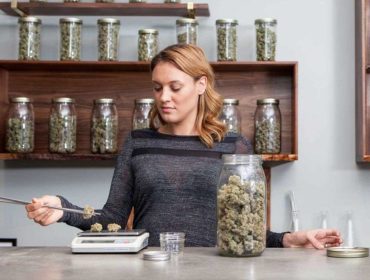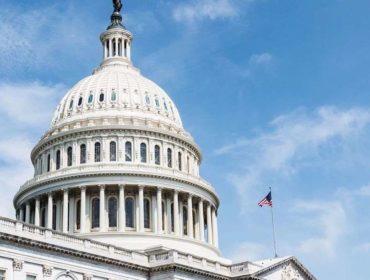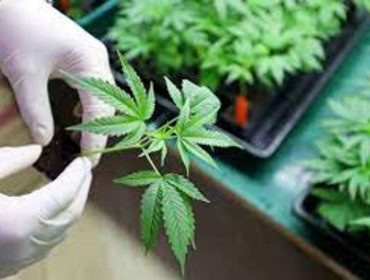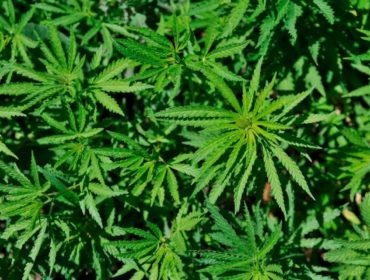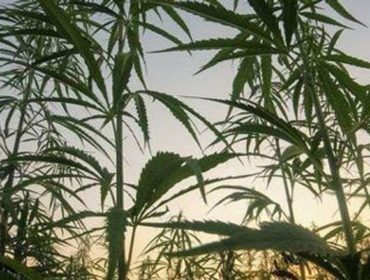SANTA FE, N.M. (AP) — Two tribal communities have been reassured they’ll be able to take part in New Mexico’s marijuana market opening in April without the threat of federal law enforcement interference on tribal land, according to agreements with state cannabis regulators signed on Friday.
The agreements outline plans for cooperative oversight of cannabis production and sales in the Picuris and Pojoaque pueblos, laying the groundwork for opening the industry in Indian Country in a state with 23 federally recognized Native American tribes. It’s not clear how many other tribes may get involved amid mixed feelings about legalization.
There has been uncertainty about U.S. drug enforcement priorities after enforcement actions on reservations. Officials raided a household marijuana garden at Picuris Pueblo in northern New Mexico in September 2021, months after legalization went into effect.
Across the U.S., tribal enterprises have taken a variety of approaches as they straddle state and federal law, and jurisdictional issues, to gain a foothold in the cannabis industry.
In Washington, the Suquamish Tribe forged a pioneering role under a 2015 compact with the state to open a retail marijuana outlet across Puget Sound from Seattle on the Port Madison reservation. It sells cannabis from dozens of independent producers.
Several Nevada tribes operate their own enforcement division to help ensure compliance with state- and tribal-authorized marijuana programs, including a registry for home-grown medical marijuana. Taxes collected at tribal dispensaries there stay with tribes and go toward community improvement programs.
In New Mexico, widespread sales for recreational marijuana are set to begin April 1 to adults 21 and older under legislation signed a year ago by Democratic New Mexico Gov. Michelle Lujan Grisham. Lawmakers hope to spur new employment and reverse harm inflicted disproportionally on racial and ethnic minorities by past drug criminalization.
In a statement, Picuris Gov. Craig Cuanchello described Friday’s agreement with the state as a “collaborative effort to maintain a robust regulatory environment for cannabis,” also describing “an exciting new opportunity to diversify our economic development.”
“Revenues from a Pueblo cannabis enterprise will support tribal governmental programs and the surrounding community,” he said in the statement.
Arrangements for excise taxes on cannabis sales on tribal land were unclear and may be addressed in separate agreements. New Mexico plans to levy an initial 12% tax on recreational cannabis sales in addition to standard taxes on sales.
The new pact acknowledges that the U.S. Controlled Substances Act continues to criminalize marijuana, while outlining a commitment to a local regulatory system that prevents access to marijuana by young people, impaired driving, financial support for criminal networks, adverse health effects or interstate cannabis trafficking.
Tribes will maintain their own cannabis regulations in close consultation with the state — though state rules apply to cannabis testing, packaging and labeling.
In 2018, federal law enforcement authorities uprooted about 35 cannabis plants grown by the Picuris Pueblo in a foray into medical marijuana cultivation. New Mexico authorized medical marijuana sales starting in 2007.
Tribal enterprises at Picuris Pueblo, a remote community of fewer than 300 residents, include a newly opened fuel station and mini-grocery. Pojoque Pueblo by comparison has robust business holdings that include a golf course and major hotel and convention center, which doubled as a pandemic isolation unit for Indian Country during the onset of COVID-19.
The marijuana raid by the Bureau of Indian Affairs last year confiscated nine cannabis plants from a home garden at Picuris Pueblo that was tended by Charles Farden, a resident since childhood, who is not Native American.
The 54-year-old is enrolled in the state’s medical marijuana program to ease post-traumatic stress and anxiety and New Mexico allows up to a dozen home-grown marijuana plants per household for personal use.
Contacted Friday, Farden said the raid still aggravates his anxiety and depression, and also makes it harder to afford medical cannabis.
“I haven’t even really slept a full night since it happened,” he said.
Officials with the Bureau of Indian Affairs and its parent agency, the Interior Department, have repeatedly declined to comment on the raid and its implications.
In late 2020, a combination of state, federal and tribal law enforcement cooperated in a raid on sprawling marijuana farms with makeshift greenhouses in northwestern New Mexico, with the consent of the Navajo Nation president. Authorities seized more than 200,000 plants.
At the time, New Mexico limited marijuana cultivation to 1,750 plants per licensed medical cannabis producer. The limit is now 25,000 plants.
Source: https://abq.news/2022/03/tribes-prepare-for-cannabis-ventures-in-new-mexico/


